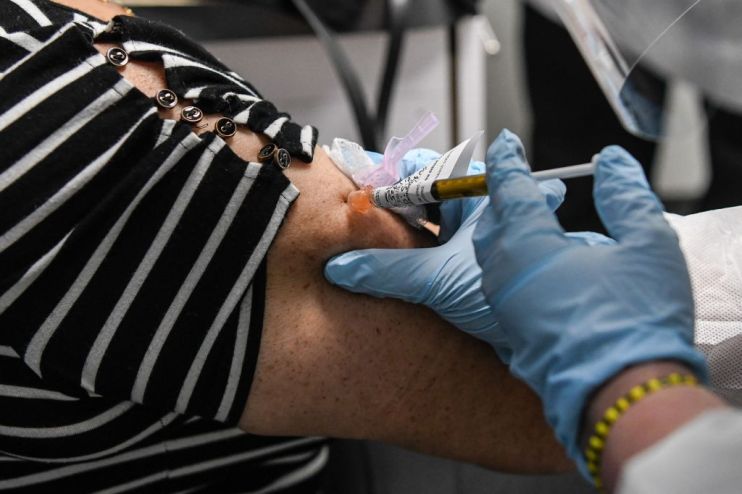Italy begins coronavirus vaccine trials as WHO chief urges global cooperation

Italy has become the latest country to begin testing a potential coronavirus vaccine on human candidates, it was announced today, as cases of the new disease continue to rise again in Europe.
The trial begins as the World Health Organization (WHO) urged countries around the world to come together to ensure that all nations get equal access to the vaccines.
Over the coming week, 90 volunteers will undergo trials at a hospital specialising in infectious diseases in Rome.
Patients will initially be monitored on site for four hours, before remaining under monitoring at home for the next 12 weeks.
If the initial trials are successful, scientists will conduct second and third stage trials on larger groups of subjects in countries with higher infection rates like Brazil and Mexico.
Officials at the hospital said that if the trials are successful, the first doses of the vaccine could be available in the spring.
Before the Open newsletter: Start your day with the City View podcast and key market data
The vaccine which is being tested was produced by Italian firm Reithera, which said that initial results from animal testing had been positive.
Similar trials are currently taking place in the UK, India, Russia and China as scientists rush to find a treatment for the disease, which has killed over 800,000 people worldwide since emerging in China at the end of last year.
Thus far, 172 countries have signed up to the WHO’s Covax scheme, which WHO director-general Tedros Adhanom Ghebreyesus said was critical to bringing an end to the pandemic.
However, he warned that more funding was necessary if the scheme was to be a success, and urged countries to make binding commitments.
Speaking to the media, he said: “Vaccine nationalism only helps the virus. The success of the Covax facility hinges not only on countries signing up to it, but also filling key funding gaps.”
Countries wishing to be part of the plan have until the end of this month to submit expressions of interest, WHO officials said, with the first payments due in early October.